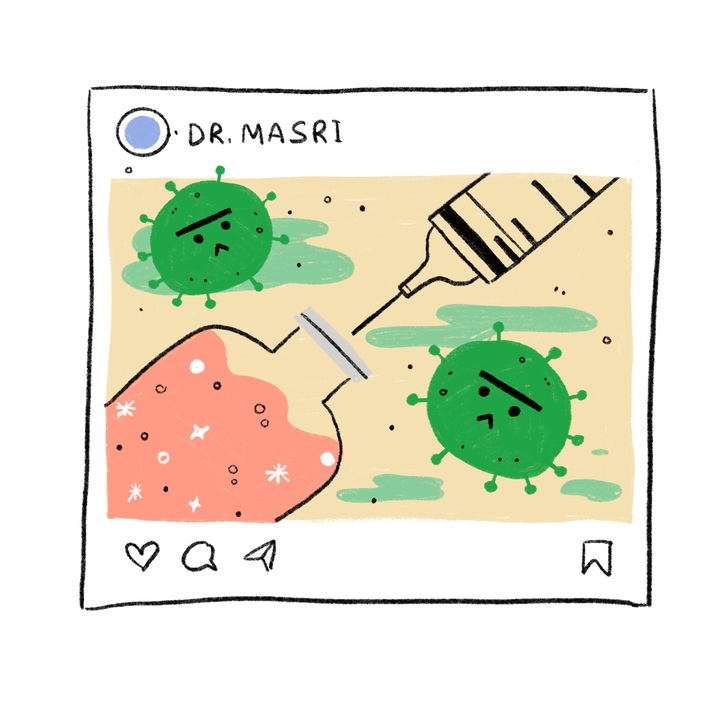
Dr. Hassan Masri is an ICU physician based in Saskatoon and an associate professor at the University of Saskatchewan. He has taken it upon himself over the last year to spread truthful information about COVID-19.
By posting videos and other resources on his Facebook and Instagram accounts, Masri continuously educates people on everything from wearing masks to vaccines to what it’s been like for him personally to be in the ICU with COVID-19 patients.
Masri says he was first prompted to start sharing his expertise after being shown videos from members of his own family spreading blatant misinformation about COVID-19 and how to “cure” it.
“I felt that such a video, if it was to spread very widely, may be very harmful,” Dr. Masri said. “I decided to contribute with my own knowledge.”
He began making videos in Arabic, feeling that the community was rather underserved when it came to information, shortly followed by videos in English. The response to his first few videos was much greater than he anticipated.
“I thought, it sounds like there’s a huge amount of hunger and thirst for knowledge out there, and people want to know,” Masri said. “If people like me and other people who have knowledge don’t spread and fill that void, others will fill it with misinformation and fear and all kinds of misconceptions.”
Masri says that it is critical for people to know the truths about COVID-19 because there are real-life consequences to misinformation.
“If I am misinformed about the seriousness of COVID-19, then I may hurt myself and I may hurt other people,” he said. “Similarly, there are real-life consequences too in terms of saving lives and preventing tragedies when we listen to these facts.”
Masri shares that he’s been staying positive over the last year by allowing himself to see hope. He notes that it’s important to remember every pandemic that human beings have lived through in the past has ended. In addition to that, he reminds himself that others have it worse, which helps him to stay grounded.
“Life might have become difficult for me, but it has become way more difficult for so many other people,” Masri explained. “Sometimes when you compare your problems or your difficulties to others, then you quickly will realize that your problems are actually not that big, and that you should be grateful.”
He was also very grateful to have received so much positive feedback and so many words of support over the last year.
Masri feels that the role he has played sharing his knowledge both in the hospital and online has impacted him in a positive way, and made him feel that his contributions really mean something. He says that human beings like to feel like they are contributing when faced with a large battle, such as the present fight against COVID-19. All of the work he has done over the last year has allowed him to feel part of this solution.
“You know, at the end of the day, we can always think of COVID as a horrible disease that changed our life. But I also tried to really focus on the positive things and meaningful things that came out of COVID,” Masri said.
“I don’t think I ever valued a sit-down with my family or friends at a dinner table like I do today. I never really valued the presence of families at my patient’s bedside like I do today. Just trying to make the best out of a bad situation sometimes can be really helpful in making sure that we continue to be positive.”
—
Beth Zentner | Contributing Reporter
Graphic: Anh Phan | Design Editor
Leave a Reply